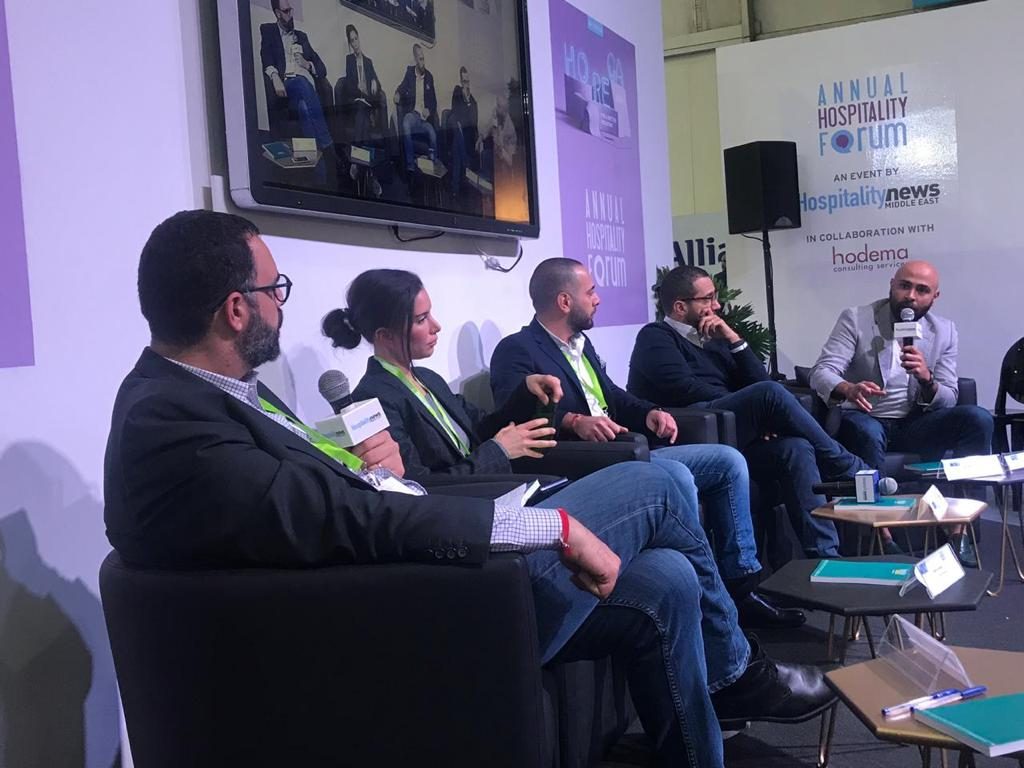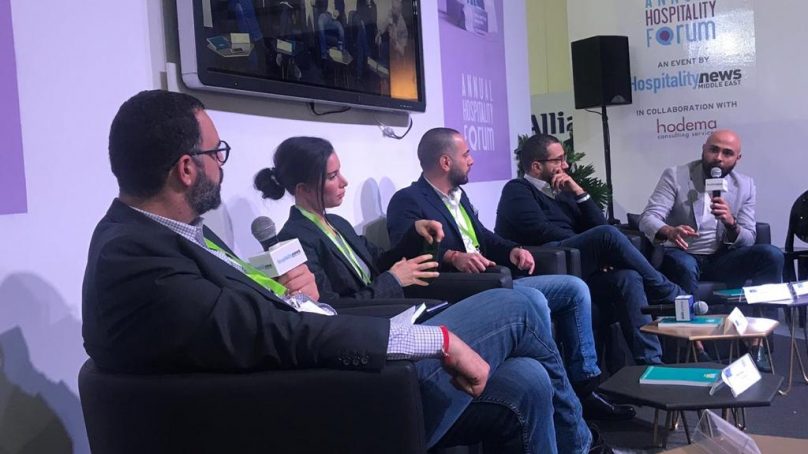
Ramy Boujawdeh, Angela Sawan, Dani Haber, Bechara Haddad, Daniel Kofdrali (left to right)
In its continued drive to share with our readers some of this year’s interesting panel discussions, Hospitality News magazine covered the HORECA 2019 talk titled, ‘On-Demand, Services Reshaping Food and Beverage’, which is a rundown of the new digital services in the F&B industry, how technology is transforming the food delivery scene and the trends that are impacting the sector.
The panel is moderated by Ramy Boujawdeh, Deputy General Manager of Berytech and the speakers are:
- Dani Haber, GM, King Food
- Bechara Haddad, Country Manager, Zomato
- Daniel Kofdrali, Founder, Onlivery
- Angela Sawan, Co-Founder, Green Junkie
AS: The biggest challenge we face, is raising awareness to our brand, considering that we are a dark kitchen, meaning that customers never get to visit our operation, rather order remotely. It is a concept that emerged some five years ago. Furthermore, without the ability to place the brand within a physical space makes gaining customers’ trust even more difficult. However, we believe that this concept, which is relatively new to Lebanon, offers a different kind of advantage in that customers’ attention is completely diverted from location(s) to the brand itself. On the other hand, factoring-in the ever-growing demand for fresh and healthy food options, we are using all the resources at our disposal, be it fast and reliable delivery times, eco-friendly packaging and certified hygiene food processing strategies to grow the brand to its full potential.
BH: When we launched Zomato in Lebanon, we proceeded gradually, so as to amass as much data about the country’s existing eateries prior to launching the brand’s online delivery app. Part of the gathered information related to what various willing participants provided us with, which we then filtered and categorized accordingly. This allowed us to push forward plausible suggestions potential customers may be interested in. To further distinguish ourselves from other similar services, we launched, two weeks ago Zomato Gold in Lebanon, which contrary to the purpose of the delivery app itself, is a subscription-based service that encourages eating-out experiences rather than ordering-in!
DK: In 2013, when Onlivery was first introducing its food delivery aggregation service, I would visit restaurants explaining that if they accept to be listed on our platform, we will increase their reach and grow their sales in return for a 10-15 percent commission charge. After hearing this, many of the owners kicked me out! Today, restaurants call us asking to be listed. That is why awareness in this industry is key as Lebanese people are generally late adopters when it comes to new technology instead opting to stick with a tried and tested way of doing things. To date, however, a significant number of people still call-in to order out and they are the ones we would like to convert to our platform. While customers pay next to nothing for the service we offer, restaurants do. However, what they get in return from us is plenty of communication that adds an additional layer to their users’ experience in terms of interactivity that not only tremendously extends their reach and presence, but also growth potential that few years ago did not exist.
DH: Aside from operating the Burger King franchise in Lebanon, we also have a number of partner aggregators as well as our own home delivery services division. When combining all these, we acquire a more diverse type of offering that expands our abilities. In relation to the online platforms we use to make our brand available, these have noticeably grown and today constitute 27 percent of all deliveries made. However, based on various factors, a majority of Lebanese are still in the habit of using voice calls to place orders despite possessing the technology to do the same though digitally.
Add to Favorites 















